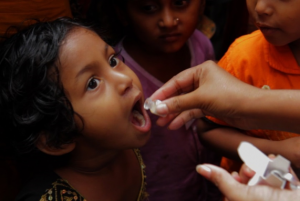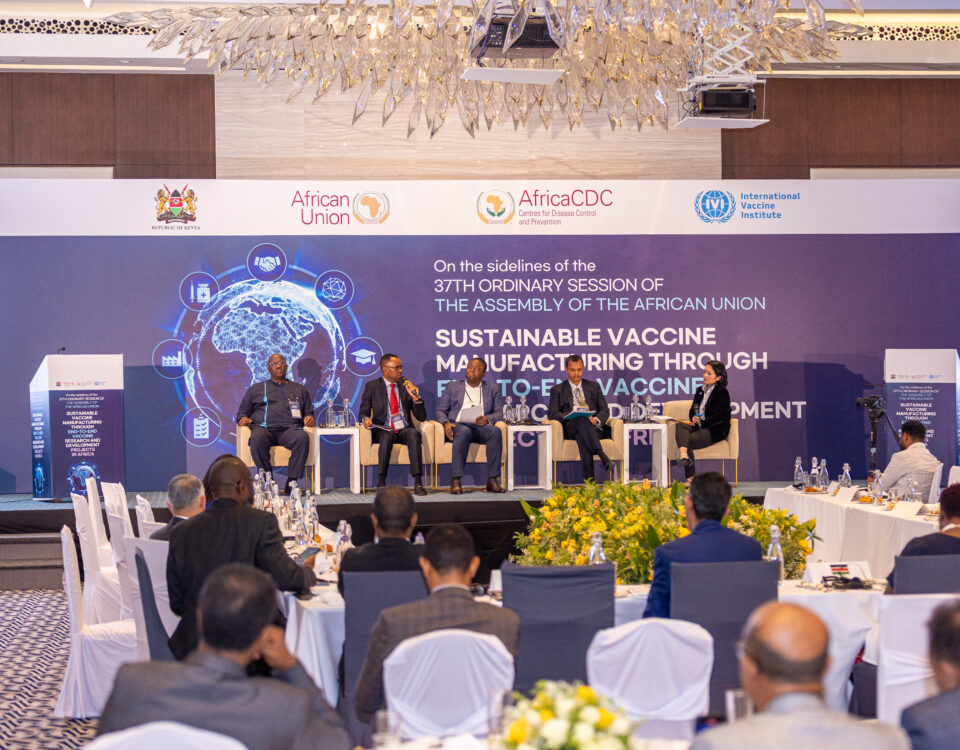‘Vaccine investment brings 16-fold return… ; partnering with Bill Gates’
Jerome Kim, Director General, International Vaccine Institute
Marking 20th anniversary of endeavors for development and delivery of vaccines such as cholera vaccine
By Kim Sung-mo
The Chosun Ilbo, October 10, 2017
“Investment in vaccines is investment in the future” says Director General
Dr. Jerome Kim of the International Vaccine Institute in an interview on IVI’s 20th anniversary

“Investment in vaccines can bring a 16-fold return, and $1 investment can result in $16 in saving through disease prevention (estimate by Johns Hopkins University research team).”
“IVI developed an oral cholera vaccine and has had the vaccine introduced in Haiti and Malawi and elsewhere, saving the lives of children and the impoverished in developing countries” said Jerome Kim (58), Director General of the International Vaccine Institute (IVI), in an interview marking the 20th anniversary of IVI’s establishment.
According to the World Health Organization (WHO), 2.9 million people worldwide are infected with cholera each year, and 95,000 of them die. IVI developed a vaccine that is inexpensive and easy to administer, which has been introduced in 14 countries, to save lives and reduce the burden of disease treatment. IVI is the world’s only international organization devoted to development and delivery of vaccines for people in developing countries, especially children. It was established in 1997 as an initiative of the United Nations Development Program (UNDP) and is headquartered in Korea.
“IVI serves as an ‘accelerator’ to develop and deliver vaccines with support from governments, philanthropic foundations and corporate sponsorships, and coordinates efforts to ensure that vaccines are produced and supplied speedily at affordable prices.”
Director General Kim said the oral cholera vaccine was also developed with support from the Bill & Melinda Gates Foundation (Gates Foundation) founded by Microsoft co-founder Bill Gates and his wife Melinda Gates, and the Swedish government, among others. IVI transferred the vaccine technology to a Korean company, EuBiologics, and an Indian firm, which are mass producing the vaccine.
IVI is also developing a vaccine against typhoid fever, a ‘disease of the poor,’ with the aim to have the vaccine commercialized in three to four years, and pushing to develop a vaccine against MERS through (collaboration with) partner companies.
Recently, IVI has been working to create a ‘Research Innovation in Global Health Technology,” an international public-private partnership fund. The Gates Foundation (25%) and the Korean Ministry of Health and Welfare (50%) are set to provide contributions to the 50 billion-won fund, while domestic biotech and pharmaceutical companies will invest 25%.
The reason behind the Gates’ decision to invest in a public-private fund in Korea may be related to the fact that he calls himself an ‘impatient optimist. “Mr. Gates is impatient, and (the foundation) picked Korea as an ideal place to develop and deliver affordable vaccines faster.”
Director General Kim, a Korean American, is a grandson of the late Kim Hyun-ku, who led Korea’s independence movement overseas with former President Rhee Syung-man. Kim reportedly chose to come to Korea as IVI Director General due to my grandfather’s love of his fatherland. As a world-renowned authority on HIV vaccine research, Kim expressed worries about infectious diseases that are spreading increasingly widely. “Investment in vaccines is investment in the future,” he said.
See the article in Korean as printed in the Chosun Ilbo:
http://news.chosun.com/site/data/html_dir/2017/10/10/2017101000369.html




